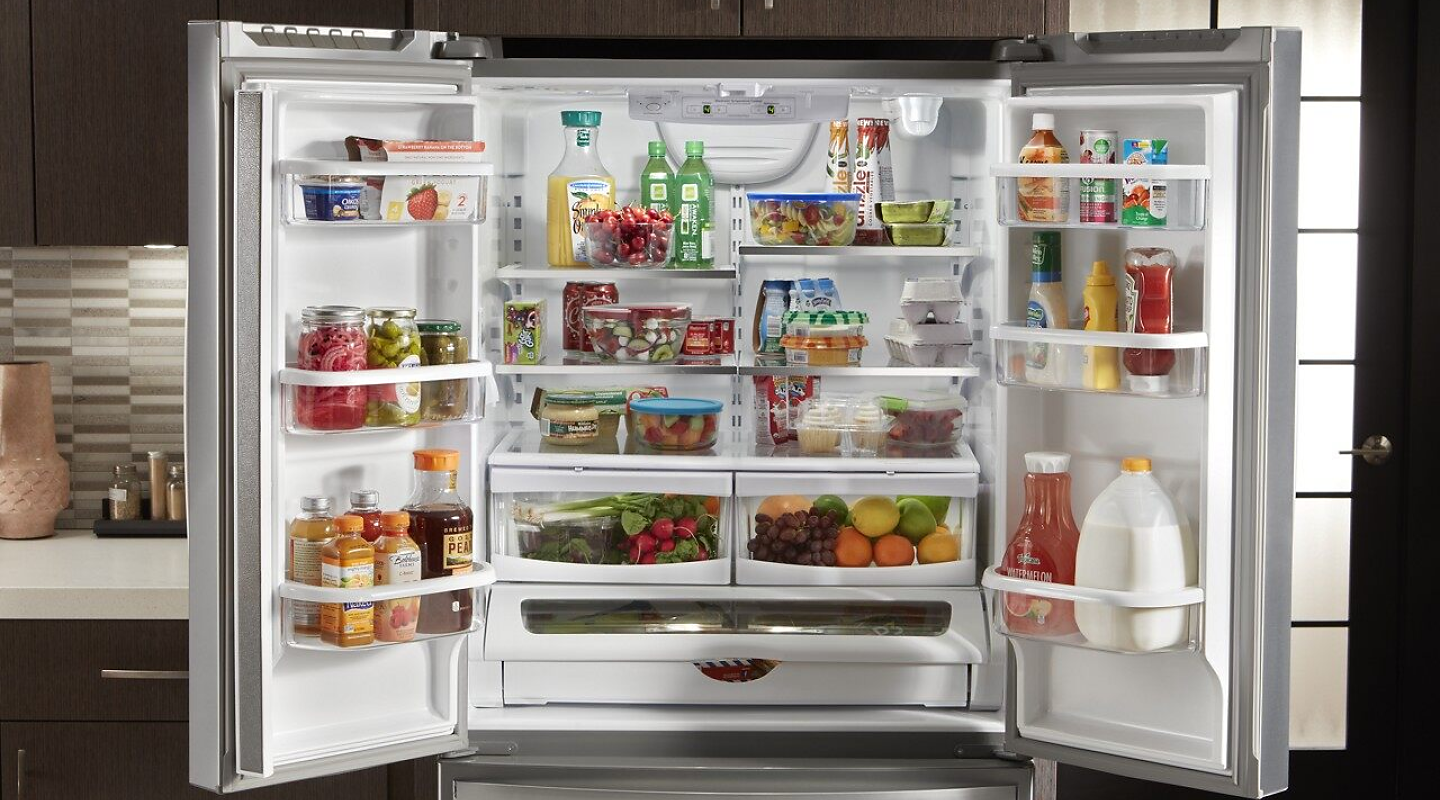Experiencing a refrigerator that freezes your food instead of just keeping it cool can be both perplexing and frustrating. This issue can lead to wasted food, unnecessary hassle, and a spike in your frustration levels. Here at TheKitchenApplianceDad.com, we understand how important it is to quickly resolve such issues, ensuring your kitchen appliances work as intended. In this detailed guide, we’ll explore why your refrigerator might be freezing your food and offer practical solutions to remedy this frosty problem.
Before diving into the solutions, it’s crucial to understand why a refrigerator might start misbehaving in this way. Typically, a refrigerator should maintain a temperature of about 37-40 degrees Fahrenheit (3-4 degrees Celsius) in the fridge compartment. Freezing in this section usually points to a malfunction or misadjustment.

The first thing to check if your food is freezing in the refrigerator is the thermostat. Sometimes the thermostat is accidentally set too low. It’s easy to bump against the control knob or for kids to play with it, setting the temperature lower than ideal.
A faulty thermostat can also lead to overcooling even if the settings are correct. If the thermostat isn’t reading the temperature correctly, it won’t regulate the fridge’s cooling mechanism effectively, leading to a colder than desired interior.
Proper airflow is essential for the refrigerator to maintain an even temperature. Overpacking your fridge can block vents, restricting airflow and causing cold spots where food can freeze. Make sure there’s enough space around items for air to circulate.
If the door seals are worn out or damaged, your refrigerator might be working overtime to maintain the right temperature, which can sometimes result in overcooling. Check the seals around the door for any leaks or tears.
The thermistor monitors the refrigerator’s temperature and sends the reading to the control board. A malfunctioning thermistor can send incorrect information, causing the refrigerator to cool excessively.
Where your refrigerator is placed can influence its performance. If positioned in a very cold environment, like a garage, during winter, the surrounding cold can impact the internal temperatures and lead the fridge to overcompensate.
Start with the simplest solution: check and adjust your refrigerator’s thermostat. Try setting it to a middle setting or follow the manufacturer’s recommended setting, which is typically around 37-40 degrees Fahrenheit.
Ensure that the interior vents in your fridge are not blocked by any items. Rearrange your food to allow for unrestricted airflow. This helps maintain an even temperature throughout the space.
Examine the seals around the door for any signs of wear or damage. Cleaning the seals can improve their efficiency, but if they’re significantly damaged, they’ll need to be replaced. This can usually be done quite easily and inexpensively.
If adjusting the thermostat doesn’t solve the problem or you suspect it’s faulty, consider replacing it. Similarly, if diagnostics indicate a faulty thermistor, replacement might be necessary. It’s advisable to consult with a professional technician for these repairs.
If possible, move your refrigerator to a part of your home that maintains a more consistent room temperature. Avoid placing it in unheated or very cold areas.
If you’ve tried the above solutions and your refrigerator continues to freeze your food, it might be time to call in a professional. Persistent issues could indicate a more complex problem with the fridge’s cooling system or electronic controls. A qualified technician can diagnose and fix the problem, ensuring your appliance operates as expected.
Understanding why your refrigerator is freezing your food is the first step towards solving the problem. By following the advice shared here on TheKitchenApplianceDad.com, you can typically resolve minor issues yourself. However, don’t hesitate to call a professional when needed to ensure your refrigerator returns to its optimal state.

